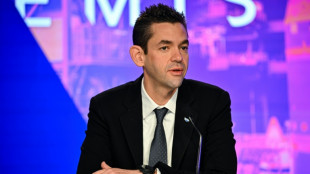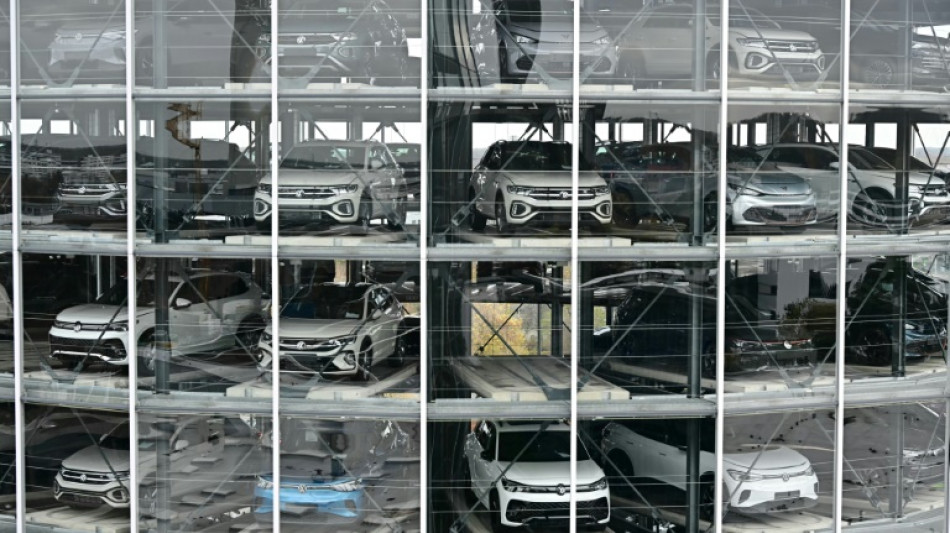
-
 Iran war spreads across region as US, Israel suffer losses
Iran war spreads across region as US, Israel suffer losses
-
Miriam Margolyes tackles aging in Oscar-nominated short

-
 Recognition, not competition, for Oscar-nominated foreign filmmakers
Recognition, not competition, for Oscar-nominated foreign filmmakers
-
Israel, Hezbollah trade fire: latest developments in Iran war

-
 Israel strikes Tehran: latest developments in Iran war
Israel strikes Tehran: latest developments in Iran war
-
Trump vows to avenge first US deaths as Iran war intensifies

-
 Lowry collapses late again, Echavarria snatches victory in Cognizant Classic
Lowry collapses late again, Echavarria snatches victory in Cognizant Classic
-
Aubameyang strikes twice as Marseille edge Lyon in Ligue 1

-
 Infantino says players who cover mouths when speaking could be sent off
Infantino says players who cover mouths when speaking could be sent off
-
Bolsonaro son rallies the right as thousands protest Brazil government

-
 Juve stay in Champions League hunt with last-gasp Roma draw
Juve stay in Champions League hunt with last-gasp Roma draw
-
Maersk suspends vessel transit through Strait of Hormuz

-
 France, Germany, UK ready to take 'defensive action' against Iran
France, Germany, UK ready to take 'defensive action' against Iran
-
Knicks halt Spurs' 11-game NBA winning streak

-
 EU warns against long war, urges 'credible transition' in Iran
EU warns against long war, urges 'credible transition' in Iran
-
Bored of peace? Trump keeps choosing war

-
 Arteta embraces Arsenal's 'Set-Piece FC' label after corners sink Chelsea
Arteta embraces Arsenal's 'Set-Piece FC' label after corners sink Chelsea
-
Sevilla rescue derby draw to deal Betis top four setback

-
 India need 'special effort' to beat England in semi-final: Gambhir
India need 'special effort' to beat England in semi-final: Gambhir
-
'A terrible day,' says Israel community shaken by deadly Iranian strike

-
 Arsenal corner Chelsea into submission, Man Utd climb to third
Arsenal corner Chelsea into submission, Man Utd climb to third
-
Arsenal win set-piece battle to sink Chelsea in title boost

-
 What future for Iranian leadership after Khamenei's death?
What future for Iranian leadership after Khamenei's death?
-
'Scream 7' makes a killing at N. America box office

-
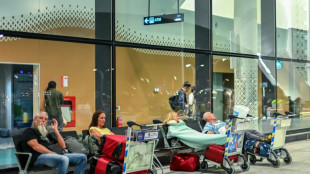 Thousands stranded as Iran conflict shuts Mideast hubs
Thousands stranded as Iran conflict shuts Mideast hubs
-
Samson's 97 puts India into T20 World Cup semi-final against England

-
 Latest developments as Iran retaliates to US-Israel strikes that killed Khamenei
Latest developments as Iran retaliates to US-Israel strikes that killed Khamenei
-
Spurs have 'big problems' says Tudor as relegation risk persists

-
 Dortmund captain Can out for season with ACL tear
Dortmund captain Can out for season with ACL tear
-
Leweling doubles up as Stuttgart sink sorry Wolfsburg

-
 Man Utd climb to third, Fulham sink sorry Spurs
Man Utd climb to third, Fulham sink sorry Spurs
-
Iran strikes send VIP Dubai influencers 'back to reality'
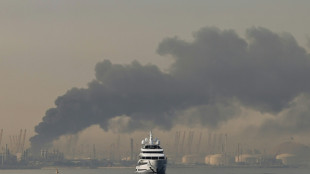
-
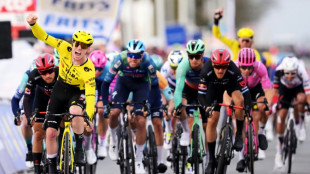 Briton Brennan bursts to Kuurne-Bruxelles-Kuurne triumph
Briton Brennan bursts to Kuurne-Bruxelles-Kuurne triumph
-
Activists pressure Milan Fashion Week to go fully fur-free
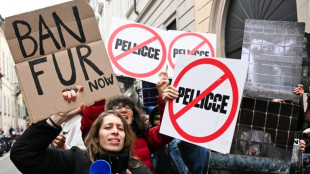
-
 Blasts in Kabul as Afghan govt says responding to Pakistan attacks
Blasts in Kabul as Afghan govt says responding to Pakistan attacks
-
Iranians grieve, celebrate, worry after Khamenei's killing
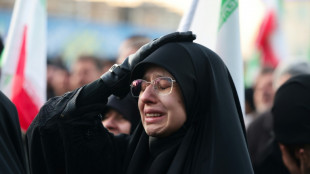
-
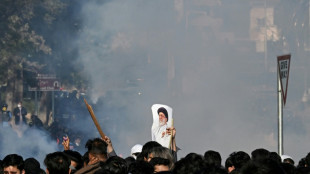 Latest developments as Iran lashes out after US-Israel strikes kill Khamenei
Latest developments as Iran lashes out after US-Israel strikes kill Khamenei
-
West Indies post 195-4 against India in T20 World Cup do-or-die clash

-
 South Africa 'embrace pressure' and favourites tag, says coach
South Africa 'embrace pressure' and favourites tag, says coach
-
Tel Aviv residents say ready to withstand more Iranian attacks

-
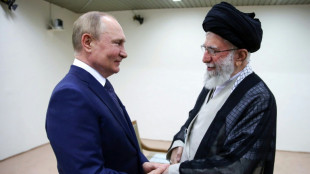 Russia loses key ally leader as Putin slams Khamenei 'cynical' killing
Russia loses key ally leader as Putin slams Khamenei 'cynical' killing
-
AC Milan consolidate top-four credentials with win at Cremonese

-
 Flights of fancy at Bottega Veneta, atmospheric mood at Armani in Milan
Flights of fancy at Bottega Veneta, atmospheric mood at Armani in Milan
-
Guardiola calls for respect after Ramadan break is booed

-
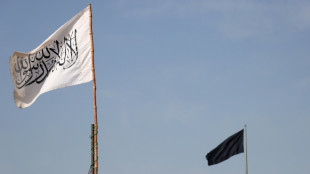 Afghanistan warns Iran war will impact whole region
Afghanistan warns Iran war will impact whole region
-
Iran launches fresh strikes across Gulf after vowing revenge for slain leader

-
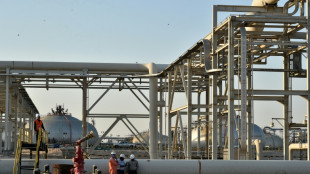 OPEC+ hikes oil production by more than expected following outbreak of Iran war
OPEC+ hikes oil production by more than expected following outbreak of Iran war
-
Goggia tightens grip on World Cup super-G with victory in Andorra

-
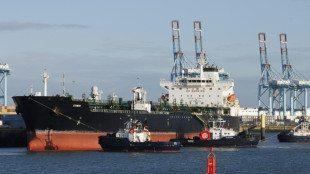 Belgium seizes Russian 'shadow fleet' tanker
Belgium seizes Russian 'shadow fleet' tanker
-
Raza steers Zimbabwe to 153-7 against South Africa


How tariffs in the EU work
Customs duties, or tariffs, have become a political punching ball as the European Union prepares to respond to US President Donald Trump's recent offensive.
But what exactly do we mean when we talk about tariffs? How does the EU policy work? Who pays them and what are they for?
Some answers:
- What are tariffs? -
Used by almost every country, tariffs are a tax on products imported from abroad.
They take many forms, the most common being a percentage of the economic value of the product -- the "ad valorem" duty.
The EU, like other economies, also uses so-called "specific" tariffs, such as an amount set per kilogramme or per litre of any given product.
Globally in 2022, the average tariff was 3.6 percent, according to the CCI-Cepii database (Centre for Prospective Studies and International Information).
In other words, each product crosses a border at a price 3.6 percent higher than its cost domestically.
"This average figure hides very strong differences between countries and sectors," Houssein Guimbard, a trade policies specialist at Cepii, told AFP.
- What are they for? -
The most immediate objective of these taxes is to give domestic producers a competitive advantage against foreign competition, said Guimbard.
Another goal, which is more the case in developing countries, is to supplement the government budget.
Some African or island countries, for example, finance more than 30 percent of their expenses this way, according to Guimbard.
Countries also use tariffs to maintain a positive trade balance and keep the amount of imports down by taxing them.
"It's a bit like President Trump's current logic," Guimbard told AFP.
- Who decides them in the EU? -
As a consequence of the customs union, the 27 member states have a common customs tariff for imported goods.
They do not apply any internal customs duties. The common customs tariff rates are set by the EU Council, based on proposals from the European Commission (EC).
They vary depending on agreements negotiated with trade partners and according to the "economic sensitivity of the products," the Commission says.
Typically, very low customs duties are applied to oil or liquefied gas "because consumers and companies need them, and the European Union does not necessarily produce them," said Guimbard.
Conversely, agriculture is highly protected: 40 to 60 percent protection on beef or dairy products, including all rights and quotas, compared to an average protection of 2.2 percent in the EU in 2022, according to Guimbard.
Since 2023, the EC has planned a "graduated response if our companies were victims of a significant increase in customs duties," Yann Ambach, head of the Tariff and Trade Policy Office at the Directorate General of French Customs, told AFP.
"It is within this framework that the countermeasures currently being considered by the EC would be implemented," Ambach said.
- Who pays them? -
In the EU, as a general rule, the importer, rather than the exporter, pays the customs duties.
If they increase, the main question is whether companies pass on the additional costs to the consumer.
"One must consider how important the product is for consumers and whether companies can raise the price of this product without reducing their margins," said Guimbard.
"The translation of the increase in customs duty also depends on the ability of companies to find alternative sources when importing, or alternative destinations when exporting."
- Who collects them? -
The member states are responsible for collecting customs duties.
They "must have adequate control infrastructure to ensure that their administrations, especially their customs authorities, carry out their tasks in an appropriate manner", according to the EC.
"The American measures and the subsequent European retaliatory measures correspond to an intensification of the missions of monitoring, verification, and control of imports and exports," said Ambach.
- Where do they go? -
For the period 2021-2027, the member states retain 25 percent of the collected customs duties.
"This measure not only covers collection costs but also serves as an incentive to ensure a diligent collection of the amounts due," the EC says.
The remaining 75 percent directly funds the EU budget. Tariffs on imported goods therefore account for approximately 14 percent of the community budget.
L.Davis--AMWN



